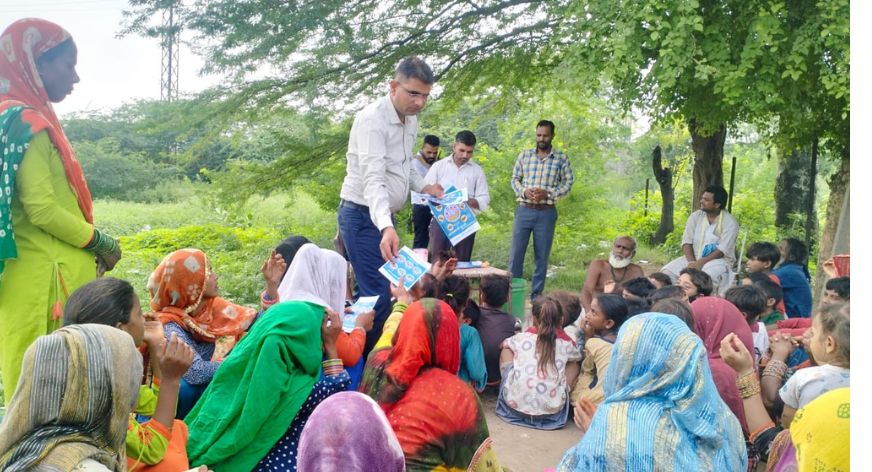- Written by: Vijender Singh
- September 29, 2025
A Call to Transform Lives
Introduction – Charity as the Heartbeat of Faith
When we hear the word charity, our minds often think of giving money to the poor or donating clothes to those in need. While those acts are certainly part of it, the biblical perspective on charity is far deeper. Charity is not just a financial transaction—it’s an overflow of God’s love through His people to meet the needs of others, both physical and spiritual.
The Bible uses different terms for charity, such as love, compassion, mercy, and almsgiving. At its root, charity is about loving God and loving people (Matthew 22:37–39). It is the visible expression of our invisible faith. In the words of the Apostle John:
The scripture says if anyone has material possessions and sees a brother or sister in need but has no pity on them, how can the love of God be in that person? (1 John 3:17)
In today’s world of increasing inequality, poverty, and brokenness, communities need a renewed vision of charity—not as a burden, but as a joyful calling. The church and Christian community are uniquely placed to bring that transformation.
- The Biblical Foundation of Charity
The concept of charity flows from God’s very nature. The Bible describes Him as compassionate and gracious, slow to anger, abounding in love (Psalm 103:8). Everything we understand about giving, sharing, and helping others begin with Him.
God as the First Giver – The greatest act of charity in history is found as scripture says in John 3:16 that For God so loved the world that He gave His one and only Son here God gave not because we deserved it, but because His love compelled Him. This sets the tone for all Christian charity—generosity that flows from love, not obligation. In the Law of Moses, God commanded His people to care for the poor, the widow, the orphan, and the stranger (Deuteronomy 15:7–11; Leviticus 19:9–10). Even agricultural laws were designed so that the vulnerable could glean and be sustained. This was not optional—it was woven into Israel’s covenant relationship with God. In the early church, charity was a lifestyle. In the scripture says in Acts 2:44-45 that all the believers were together and had everything in common, and sold possessions and goods, and divided them among all, as anyone had need.
The Apostle Paul constantly urged churches to remember the poor (Galatians 2:10) and to give generously, cheerfully and sacrificially (2 Corinthians 9:6–8).
- Charity as Love in Action
The biblical word for charity, especially in older translations like the KJV, is often agape-selfless, sacrificial love. This love is more than emotion; it is action.
Love without Action is Empty – James 2:15–17 says that suppose a brother or sister is without clothes and daily food and you say go in peace, keep warm and well fed, and does not think for their physical needs is that looks good.
Faith without works is dead, and love without charity is only a nice idea.
Biblical charity often begins with compassion – literally “suffering with” another person. When Jesus saw the hungry crowds, the blind beggars, or the lepers, He didn’t just teach them; He fed, healed, and touched them (Matthew 14:14).
True charity often costs us something – time, money, comfort, or personal convenience. The widow who gave two small coins (Mark 12:41–44) gave more than all the wealthy, because she gave out of her poverty.
- The Transformational Power of Charity in Communities
Charity is not only about helping individuals – it can change entire communities.
When we feed the hungry, provide clothing, or offer shelter, we meet urgent needs that open the door for hope and dignity. Acts of kindness can restore a sense of worth to those who feel forgotten. A warm meal or a listening ear can communicate, “You matter to God and to us.” Practical charity often paves the way for spiritual transformation. People who experience God’s love in tangible ways are more likely to receive the message of salvation.
Conclusion: Charity as Our Daily Mission
Charity, in the biblical sense, is not a one-time event or seasonal project. It is the daily overflow of God’s love through us. It is loving the unlovable, serving the undeserving, and giving without expecting return.
If our communities embrace charity as God defines it, we will not only meet needs – we will reflect Christ to a hurting world. And that is the greatest gift we can give.





